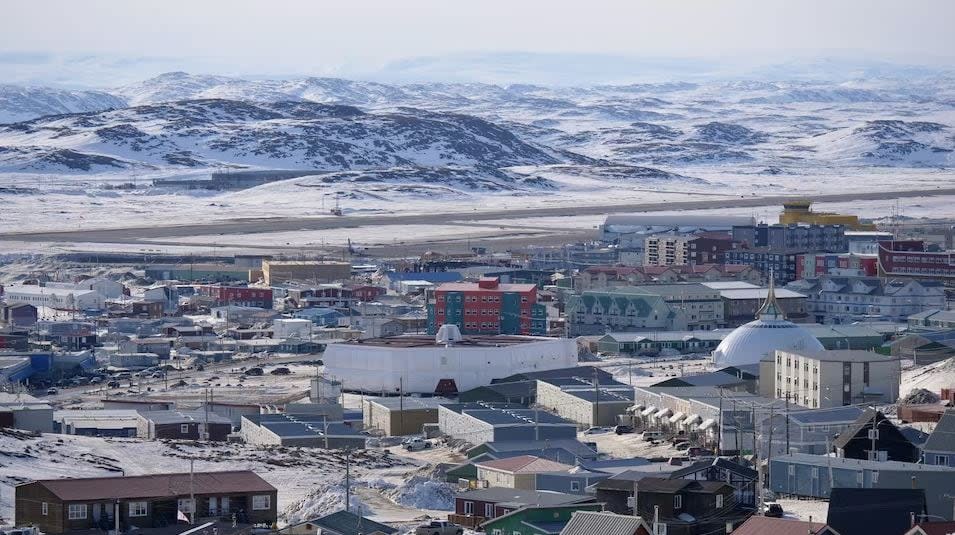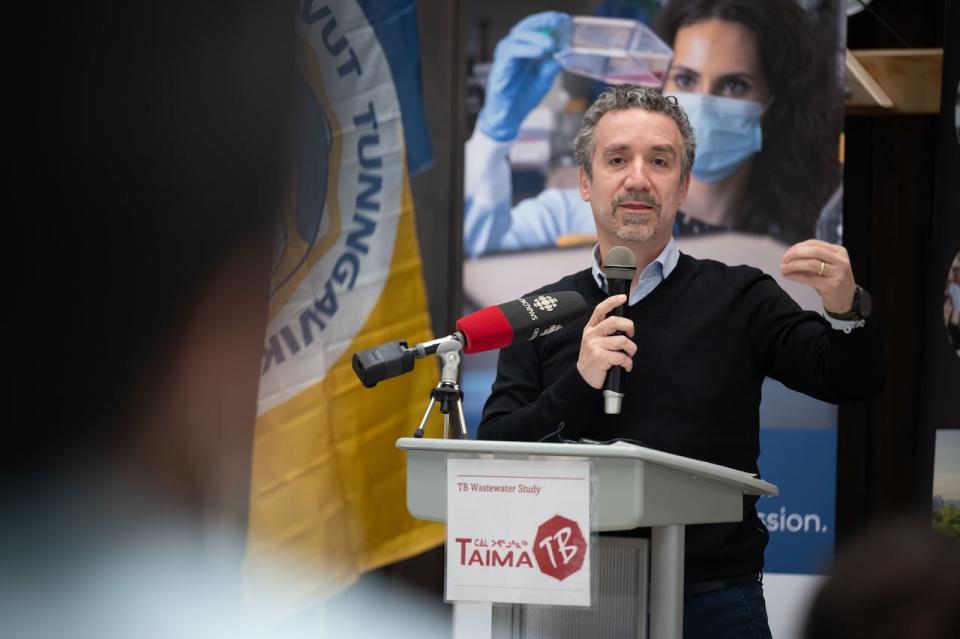5-year study to measure TB bacteria in Iqaluit wastewater could allow earlier detection

Researchers are setting up a new project in Iqaluit to see whether measuring the levels of tuberculosis (TB) bacteria in wastewater from buildings can help in the fight against the disease and save lives.
TB is a bacterial infection that can be fatal, and it spreads through the air. While there are treatment and prevention efforts in place, it continues to circulate in Nunavut. Since 2021, outbreaks have been declared in three of the communities: Pangnirtung, Pond Inlet and Naujaat.
The five-year project, by the Taima TB foundation, is aimed at measuring TB bacteria levels in the things flushed down the drain, to allow researchers to identify TB cases earlier and more easily than current methods for testing.
It's being funded by a $3-million grant from the federal government through the Canadian Institutes of Health Research, along with $500,000 from Nunavut Tunngavik, Inc.
Dr. Gonzalo Alvarez, lead researcher and a consultant for the Government of Nunavut, says the current way of screening a community is expensive and time-consuming, and it's difficult to do it every year in all 25 of the territory's communities.
"Ordinarily, to find people with TB, healthcare teams have had to go to individual communities and screen everyone in the community with things like sputum tests, skin tests, chest X rays," he said.

Dr. Gonzalo Alvarez, a tuberculosis consultant for the Government of Nunavut, speaking at a news conference on Tuesday about the new research project. (Dustin Patar/CBC)
"Without a doubt, we need better tools in order to have this ability to screen for TB in communities."
Alvarez says measuring wastewater could be a "powerful new tool" for screening, but there hasn't been a lot of research into it — and that's where this project comes in.
How it will work
Taima TB's ultimate goal is to eliminate the disease in Nunavut. This new project will be focused on developing a new tool in detecting it, and won't wipe out TB overnight, Alvarez said.
The research project will include many components, and will include measuring TB bacterial levels in wastewater for the whole city, for specific buildings, and in the pee and poop of individual people who have the disease.
TB has been found in wastewater for decades around the world, but no one has determined how to use the measurements, or narrow down cases, Alvarez said.
Alvarez says they specifically hope to link the TB levels in an individual's wastewater, and see if they can also detect that individual's TB bacteria in the wastewater of an entire house, which would allow them to "make a connection to understand when there are new cases of tuberculosis, how does that translate."
Researchers plan to study the wastewater coming out of the men's shelter in Iqaluit because there are vulnerable individuals who live there. Alvarez hopes the research can help detect cases among residents early on, and get them the treatment they need.
Community support and collaboration on this work, including the partnership with the Uquutaq Society — which operates the men's shelter in Iqaluit — is vital to the success of the project, he said.
"Without that, there is no study," Alvarez said.
Dr. Sean Wachtel, Nunavut's chief public health officer, says the results from the research could have a huge impact on the lives of Nunavut residents.
"TB is a disease that disproportionately impacts northern communities in Canada," he said.
Recently, health workers did a community-wide screening in Pangnirtung, he said, but had they been able to test the wastewater, it would have been much quicker.
"The potential of this research, should the hypothesis be proven, should not be underestimated… [it] has the potential to allow them much more efficient and rapid targeting of affected areas," Wachtel said.

